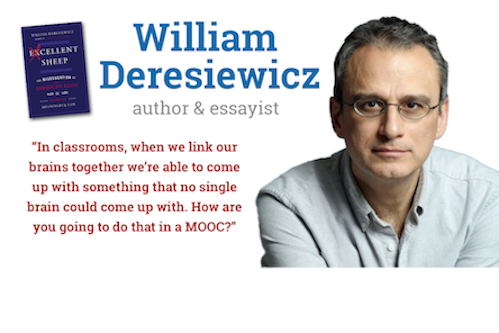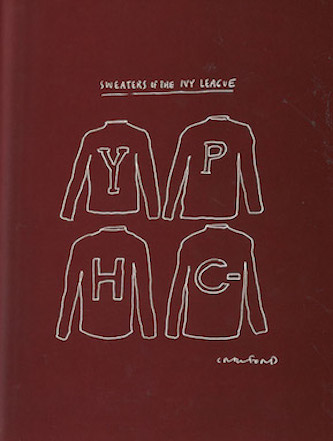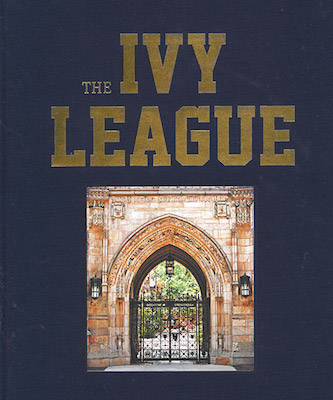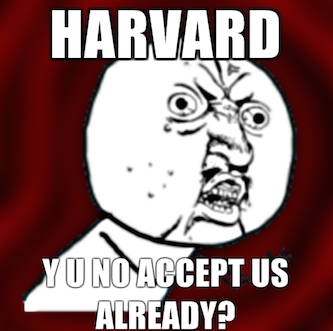 Six years ago, William Deresiewicz, a former Yale professor and literary critic, wrote a very cogent and thought-provoking essay, “The Disadvantages of an Elite Education.”
Six years ago, William Deresiewicz, a former Yale professor and literary critic, wrote a very cogent and thought-provoking essay, “The Disadvantages of an Elite Education.”
Last month, he followed up on his original diagnosis, expanded on it with further observations, and made suggestions for how to address the problem. Deresiewicz gave this most recent piece the catchy title, “Don’t Send Your Kid to the Ivy League.”
As if that weren’t enough to fuel the debate, he has now published a full length book, “Excellent Sheep: The Miseducation of the American Elite and the Way to a Meaningful Life,” which the latest essay is a chapter in.
Deresiewicz’s take on the contemporary world of elite education in America is accurate and comprehensive (By “elite education,” he means the most selective colleges and universities, plus the secondary schools that prepare students for those institutions, plus the whole new industry of college advisers and counselors whose job is to help applicants navigate the labyrinthine path to admission.)
He bases his comments on his own 25 years in two such colleges, Columbia and Yale, both as student and professor, plus innumerable interviews with current and former students at such institutions.
Deresiewicz is right that the whole admissions process has become a protracted ordeal for applicants and their families, that the “winners” in the contest have an unattractive smugness about them, and that too often young people embedded in the system burn out, physically and spiritually. Only late in the game do many contestants realize that the rewards they are seeking are not worth the price they exact, and would be disappointing even if attained.
 All true, but these results are the inevitable outcome of changes insisted on by liberal academics like Deresiewicz himself.
All true, but these results are the inevitable outcome of changes insisted on by liberal academics like Deresiewicz himself.
After World War II, returning veterans flooded into all the nation’s colleges and universities, elite and non-elite alike, under the G.I. Bill. Interestingly, the returning vets wanted to go to the most prestigious institutions that would take them, figuring correctly that the value of those degrees would be worth more to them. So the revolution in the make-up of the student bodies of the Ivies started almost 70 years ago and has only accelerated since.
During that time other groups that were previously underrepresented (or not represented at all), i.e. Jews, African-Americans, Asians, Hispanics; have all joined in the competition for admission to elite colleges.
Deresiewicz complains about the current admissions process, which seeks to balance the academic credentials with the personal qualities of applicants, but puts forward no convincing suggestions on how things might be improved.
He seems affronted, for instance, that students from private schools and affluent suburban public high schools have a decided edge in applying to the most elite colleges.
However, if we’re going to select the highest scorers on S.A.T.’s and A.C.T.’s, how could it be otherwise?
Deresiewicz is most bothered, it seems, by the prevalence of students from affluent backgrounds at these colleges. If a student comes from a home with an emphasis on education, hard work, and upward mobility (the same values that led to financial success for his or her parents); of course he or she is going to be more competitive as an applicant than those from family backgrounds where those qualities are not stressed.
 Deresiewicz says that admissions preferences for athletes should be abolished at our most selective colleges. In the same breath, he laments the fact that there are so few working class kids at these schools.
Deresiewicz says that admissions preferences for athletes should be abolished at our most selective colleges. In the same breath, he laments the fact that there are so few working class kids at these schools.
You can’t have it both ways.
If you’re not allowed to recruit athletes, who overwhelmingly come from modest socio-economic backgrounds, you can hardly complain about the scarcity of people from those less-privileged backgrounds.
I’m happy to say that the radical feminist Camille Paglia shamed my alma mater Princeton into reinstating the varsity wrestling team as an intercollegiate sport after it had been abolished under Title IX (since no equivalent women’s team was offered!). Paglia pointed out that sports like football and wrestling brought people to Princeton from blue collar backgrounds who would otherwise have had no chance to go there. I myself have always felt, but for recruited athletes, you’d never know that Princeton was in New Jersey, so removed was it from the population of the state where it was located.
You’d never know from reading Deresiewicz’ essays that it is now possible to go to schools like Princeton and receive extensive financial aid and yet graduate with no student debt. That’s because schools like Princeton have endowments so large that they can extend all financial aid in the form of grants and scholarships, not loans. Now that’s democracy in action!
While this is a recent development in terms of an undergraduate program, it has long been the practice for graduate school.
 You can get a P.H.D. at Harvard, Princeton, and Yale at no cost.
You can get a P.H.D. at Harvard, Princeton, and Yale at no cost.
Tuition, books, laptops, etc. are on the house, plus an annual stipend to cover your living costs of up to $30,000. For that reason alone, the socio-economic background of graduate students has been much less affluent than the undergrads at Princeton but that has always been the case and should be something Deresiewicz and other critics should applaud or at least take note of.
Deresiewicz also says he wants admissions preferences for “legacies” (i.e. alumni children) abolished, as well, at elite colleges. He’s equally adamant that “only” 60% of students at the Ivies now get financial aid and that it’s not right that 40% are from families that are wealthy enough to pay their way. Even if one subscribed to such Jacobin sentiments, there is the little problem of who pays for the worthy poor, if not alums with their donations and well-to-do parents who pay full fare and thus subsidize the scholarship students.
With 10 applicants for every spot his idea that reserving places for athletes or alumni children will necessitate taking clearly unqualified applicants, who cannot do the work, is doubtful. It’s also interesting that there is an additional widespread admissions preference that liberal academics like Deresiewicz never talk about. Many administrators and professors at the Ivies have negotiated as a condition of their employment the right to get their own children admitted! This has led to some interesting results, with the schools having to deal with a Dean’s son who turned out to be a big time drug dealer, or the English professor’s daughter who turned out to be a paranoid schizophrenic. “Entitled mediocrity” is not confined to rich alums.
The most egregious of his fallacies is the way Deresiewicz rationalizes all the limitations of attending an impersonal, poorly run state school as opportunities for “character building.” I agree that students at the Ivies are coddled by comparison with those at a state school. There are few, if any second chances at a place like Cleveland State, as Deresiewicz convincingly describes in relating the experience of a friend of his who went there.
However, there’s nothing particularly ennobling about receiving a sub-standard education at a place with inadequate facilities, with no counseling or extra-help available, with no dean or advisor to mentor you if things get rough, and with a much lower standard of teaching by graduate assistants, with nary a full professor in sight.
Deresiewicz would have you believe that all this is more than made up for by the chance to rub shoulders with those lower down the class ladder. While I agree that the Ivies and other selective colleges can breed arrogance, it is more than matched by another kind of arrogance,i.e. liberal condescension,like that displayed by his friend who claims she was glad to attend a mediocre public high school because it gave her a chance to learn to relate to “stupid” people. Who is the “out-of-touch, entitled little shit?” (To quote from his July 17th essay)
 Deresiewicz forgets that elite private colleges and state universities were founded at different times in our nation’s history. The Ivies were largely started to train young gentlemen for the ministry. The land grant state universities were established to provide working people of modest means a practical education in things like agronomy, engineering, and teaching. They have different roles and thus have a different emphasis in their curriculum. Why wouldn’t their student bodies be different in make-up and outlook?
Deresiewicz forgets that elite private colleges and state universities were founded at different times in our nation’s history. The Ivies were largely started to train young gentlemen for the ministry. The land grant state universities were established to provide working people of modest means a practical education in things like agronomy, engineering, and teaching. They have different roles and thus have a different emphasis in their curriculum. Why wouldn’t their student bodies be different in make-up and outlook?
I think the best education is one that blends the private and the public tradition.
I have two university degrees, one from Princeton and one from the University of Kansas. I would not have chosen differently and have come to understand and appreciate both. There is no need to make invidious comparisons between the two in order to score cheap political points. (Oh, did I tell you that elite education institutions,according to Deresiewicz, add to “income inequality?” Off with their heads!)










I agree that sports scholarships at universities here should be abolished, it takes away from the academics. Just make sports at higher education club sports like it is around the world.
As far as the Ivies vs Land Grant institutions- there are needs for both. Some are more equal than others.
I’ll never forget the decision I had to wrestle with when I decided on a college: Barber? Or Clown?
If you’ve read my posts the choice I made is obvious.
I obviously did not post that.
I have been bald, it seems since birth and my jokes are only marginally funny.
Literally every single greedy asshole that populates Wall Street is from one of these schools.
Actually,Bernie Madoff graduated from Hofstra,which doesn’t qualify necessarily as an elite school.Otherwise,you’re right. Virtually all the biggest sharks have degrees from Ivy League or equivalent schools of one kind or another. That begs the question of whether these schools create society’s “he who dies with the most toys wins” mentality,which so many of our best and brightest seem to have, or merely reflects it,since most people have their values pretty well established coming in.( Was it Napoleon who said “Show me what a man was thinking at age 20 and I’ll show you what he thought the rest of his life”?)
Among all public high schools in Missouri, you’ll find substantial variation in the quality of educators and facilities — the same goes for public universities, so it’s unfair to claim they all provide “a sub-standard education at a place with inadequate facilities, with no counseling or extra-help available, with no dean or advisor to mentor you if things get rough, and with a much lower standard of teaching by graduate assistants, with nary a full professor in sight.”
And on the last point, Ivies are not immune to the rush toward contingent faculty: well over 50% of faculty at Harvard and Yale are non-tenure-track.
Bifurcating higher education into Ivies or land grant ignores the fact that many of the better public schools predate the Morrill Acts and/or come from liberal arts roots rather than agronomy/teaching/engineering. For example, of the 34 public members of the prestigious Association of American Universities (which includes KU), only a handful are land grant.
I did not mean to say that all public universities are inferior. On the contrary,there are a number of such institutions that are deserving of the title “Public Ivies”. Obvious examples would be the University of Virginia, UCal-Berkeley,UCLA,Michigan,Wisconsin,North Carolina,Texas,etc. My point was that Deresiewicz romanticizes the “school of hard knocks”virtues of being stuck in a state school that is inferior. Yes,you are right that the idea of state universities predated the Morrill Act, even though that was the real spur to their growth. (That’s why they are so strong here in the Midwest but relatively weak on the East Coast. There was no state wide university system in New York until the 1960’s!) The real father of public higher education was Thomas Jefferson with UVA but here is the Catch-22. Jefferson said we need to sort through “the rubbish”(the general population!) to cull out the handful of nature’s aristocrats.
By definition,true excellence is only attained by a few in any given field. A meritocracy is inherently elitist,since there have to be different rewards for different levels of achievement. The selection process is going to be very competitive and will only get more competitive as it gets more democratic,i.e. it is opened up to everyone of talent and ambition,regardless of background. ( The results may not always be pretty,i.e.the term “meritocracy’ is taken from a British science fiction novel where the process was described in scathing terms. It was not meant as a compliment! )
This is true whether the institutions doing the selecting are public or private. Look at Oxford and Cambridge in the UK and Sciences Po,the elite school of administration that largely defines the French ruling class. I appreciate your comments and agree with your points.
Although I haven’t read the book, I read Deresiewicz’s essay on this topic several years ago in The American Scholar. I think many of the “hard knock” virtues would apply to the “public ivies” as well as the Cleveland States: students at Michigan & Virginia can actually fail classes, they don’t expect gentleman’s Cs (or an A just for completing the coursework).
Fair enough,but there is a reason for this. State schools,even the elite ones,have to accept in-state residents who meet certain criteria. Since this results in huge incoming classes,more than they can handle, these schools don’t have the luxury of never flunking anyone out. I understand that in the 60’s KU routinely flunked out 40% of the freshmen. The problem in all these colleges nowadays is runaway grade inflation. Once more,liberal academics like Deresiewicz are hoist by their own petard. Once Princeton tried to address the problem by limiting the number of A’s a professor could give out in a class( to 40% !),the faculty all screamed that it was an assault on “academic freedom”!, i.e. it was easier to just give out A minuses to every one. Another example is his complaint that it’s a shame that too few students at the Ivies choose the military as a career. Who was it that kicked ROTC off campus? For twenty years after Vietnam ended,it was that war that was the reason. Then it was “Don’t Ask,Don’t Tell”.(Never mind that this was a well thought out Clinton administration policy designed to give gay people a chance to serve their country while heading off the objections from the more traditionally minded.) Now that’s been removed as an objection, it turns out that places like Columbia still don’t want ROTC,military recruiters,etc. on campus. Face it,the Left doesn’t like American patriotism or any expression of it,like a willingness to serve in the military. Doctor Deresiewicz,heal thyself !